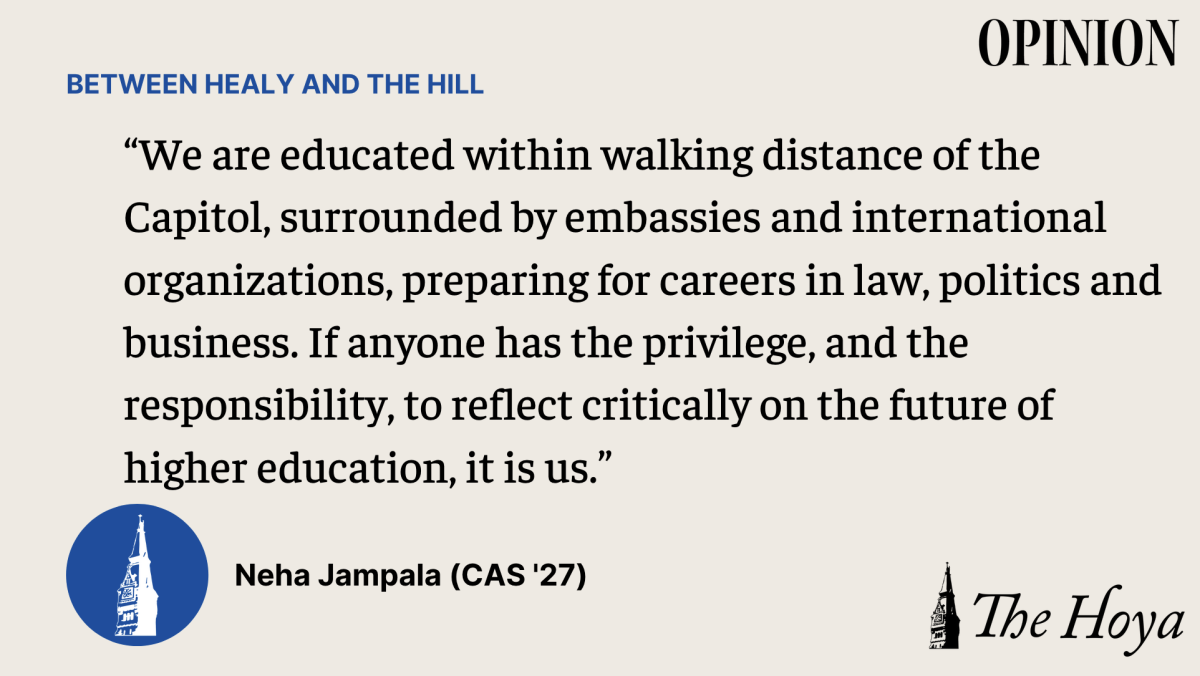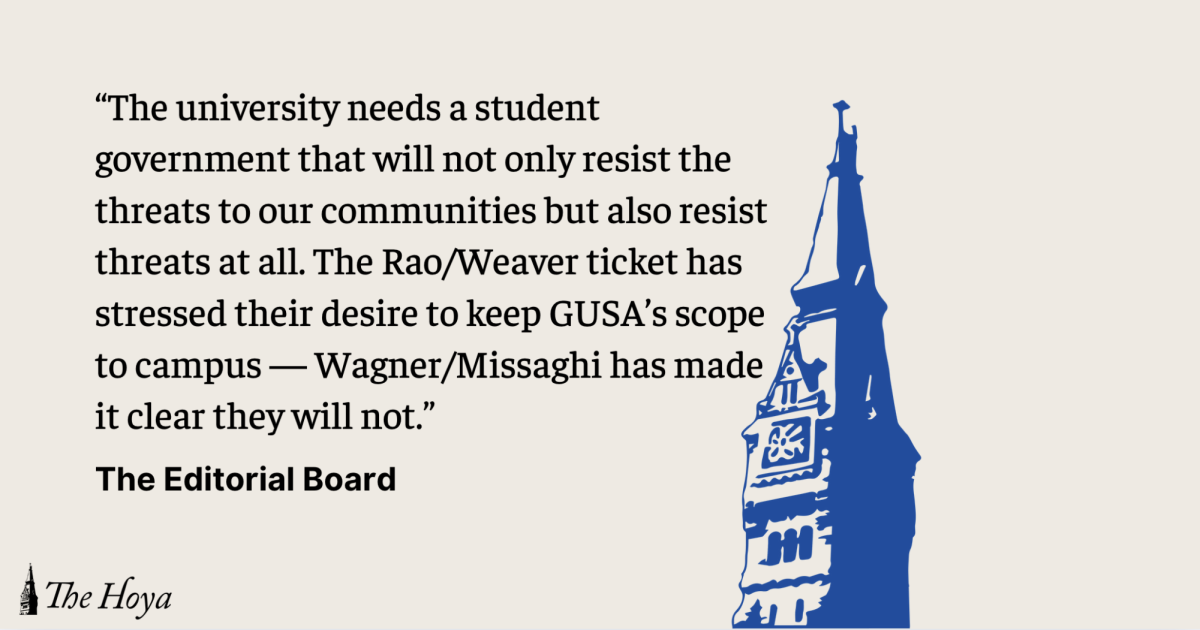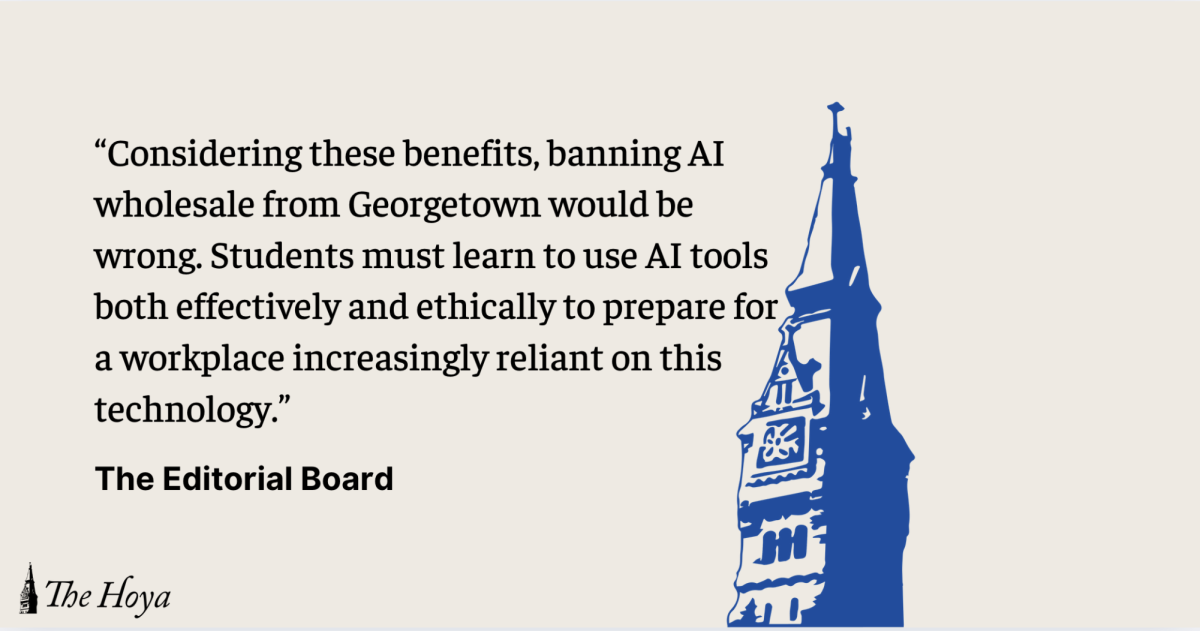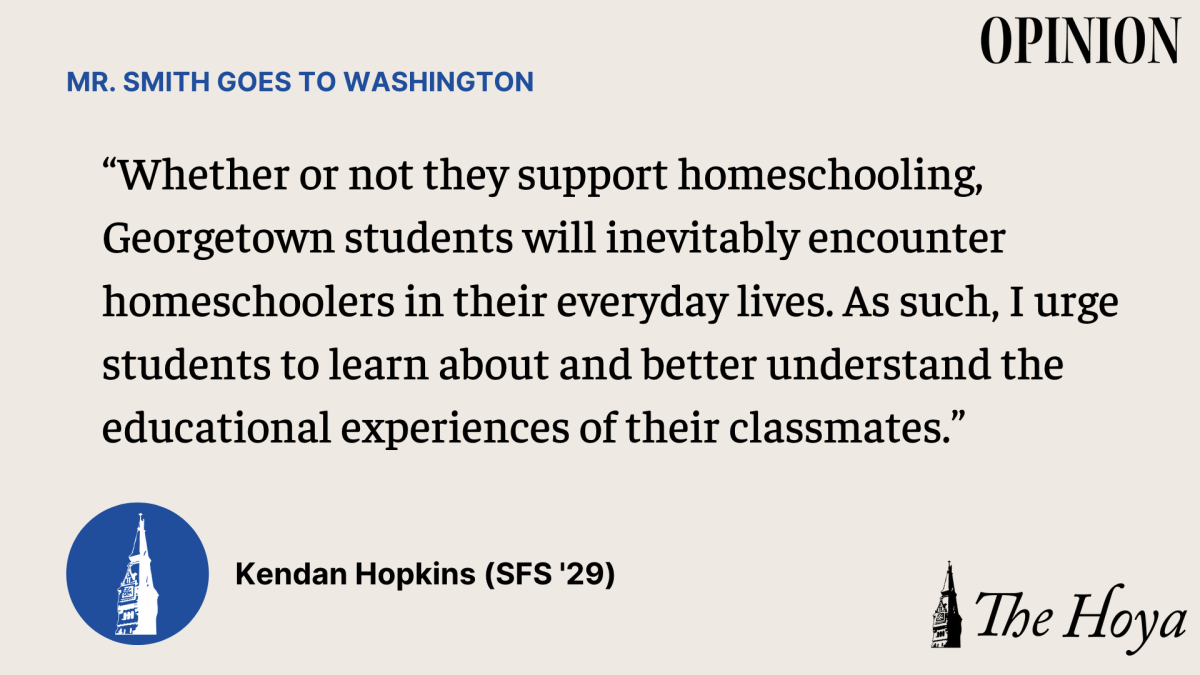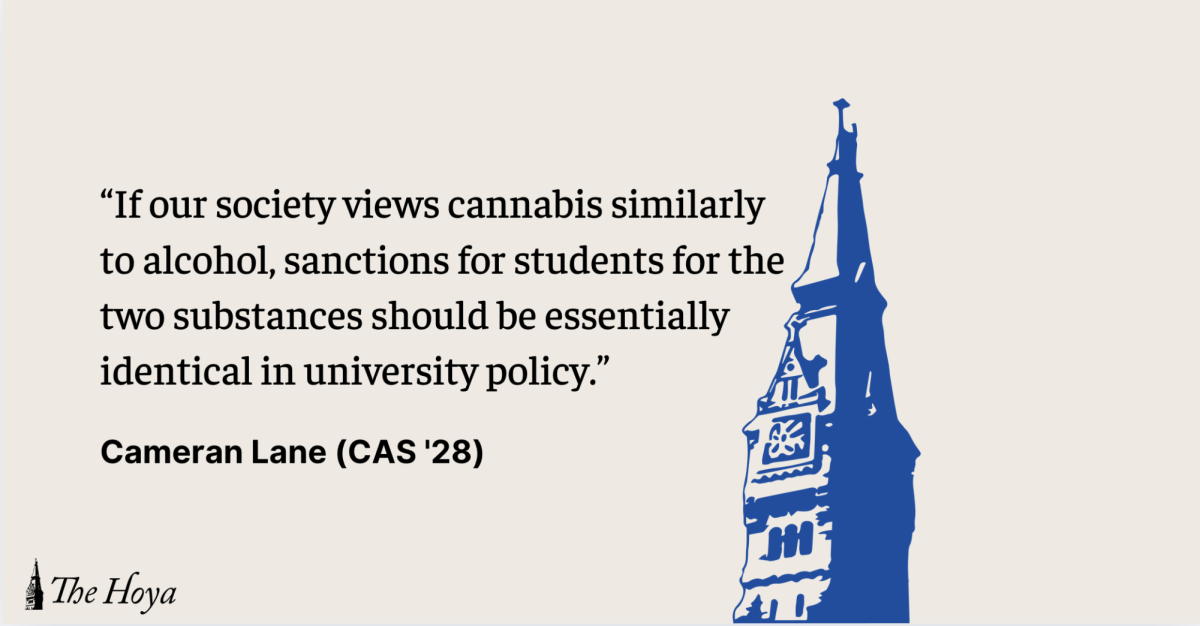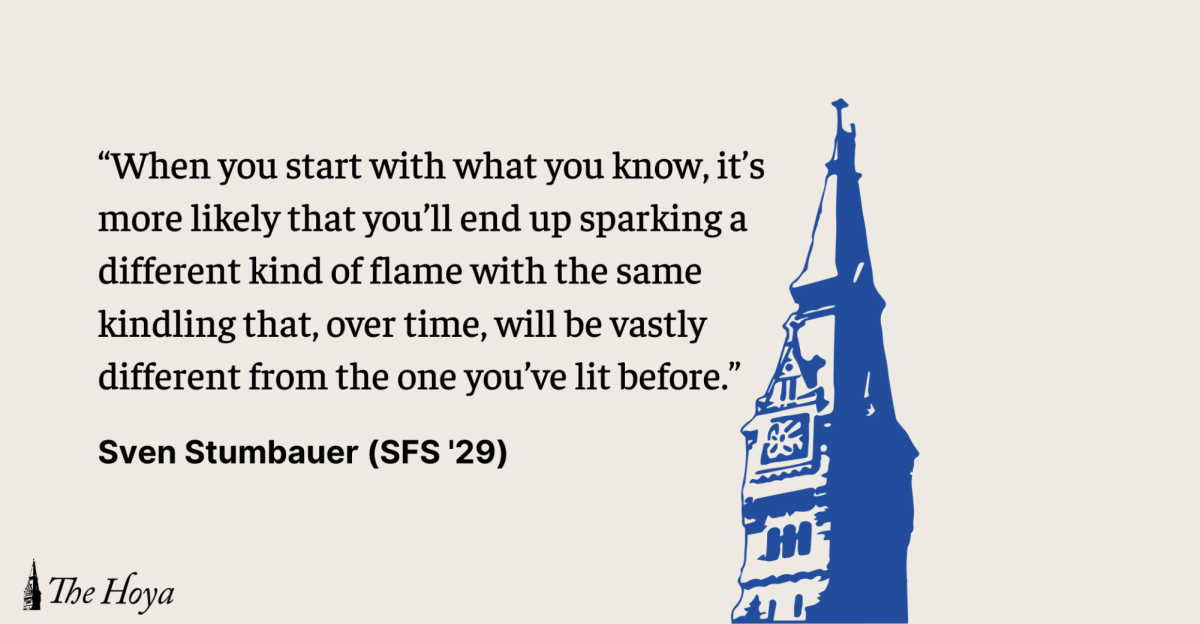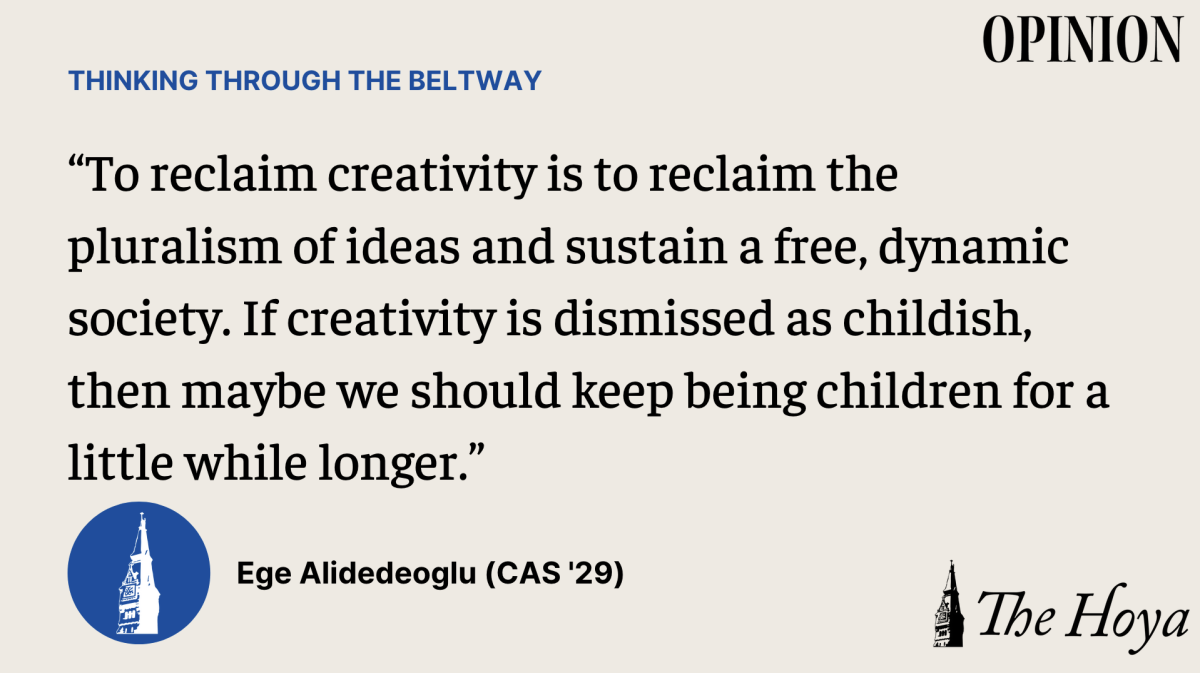On any given day, it is common to hear Georgetown University students talk about their internships on Capitol Hill, summers spent at think tanks or plans to pursue law school. As students in Washington, D.C., politics is part of our daily routines; major policy decisions can change your class’s entire syllabus or even derail planned class discussions. Few universities can match our proximity to power, and Georgetown takes pride in being a place where students learn through practical experience in the nation’s capital.
Sometimes, I wonder if our closeness to politics also makes us forget how the policies debated in those buildings affect us more directly than we realize. The government shutdown that just began? That was not just a headline; the shutdown could affect federal financial aid processing, research funding and work-study paychecks for students across the country. We are not just close to where these decisions happen; we are living with their consequences. Maybe it is time we actually use that proximity to the nation’s capital to understand what these political standoffs mean for the people around us.
Consider the growing barriers to higher education. Nationwide, tuition keeps climbing, Pell Grants stagnate and state-level funding cuts leave many public universities unable to meet students’ needs. These are not distant problems. Living in D.C., we’re just blocks away from the lawmakers who continue to debate student loan forgiveness and federal aid. At Georgetown, we see the ripple effects: students who balance multiple jobs with their coursework, peers who depend heavily on aid packages and classmates who find that, even after scholarships, the price of belonging still feels overwhelming.
The inequities extend beyond cost. Immigration policy is reshaping higher education in ways that cut to the core of Georgetown’s identity. For international students, pursuing a degree here is often accompanied by uncertainty about whether they will be allowed to stay and work after graduation. Programs like optional practical training (OPT) and H-1B visas for skilled foreign labor are lifelines, but they become untrustworthy in unstable political climates. We see our classmates, lab partners and friends often shouldering anxieties that their hard-earned education may be only temporary. While quiet, it is still a profound and persistent form of exclusion. Georgetown markets itself as preparing “global citizens,” but how global can we be if national policy makes belonging conditional?
These contradictions are especially striking at a Jesuit university. Georgetown emphasizes cura personalis and frames education as a form of service. But can we truly say that we live up to those values when access to this community is still determined by wealth, citizenship status or luck in the visa lottery? Our Jesuit identity calls us to think beyond ourselves, yet the structures of higher education and immigration too often reinforce the very inequities we claim to resist.
This is not to say Georgetown is alone. These are national issues, shaped by decades of policy choices and economic trends. Still, our location makes them impossible to ignore. We are educated within walking distance of the Capitol, surrounded by embassies and international organizations, preparing for careers in law, politics and business. If anyone has the privilege, and the responsibility, to reflect critically on the future of higher education, it is us.
So what should that reflection look like? First, it means refusing to see these debates as abstract. Funding cuts are not just statistics; they determine whether the student sitting next to you can afford to stay another semester. Visa restrictions are not just headlines; they shape whether a friend will be able to pursue the career they have always dreamed of.
Second, it means interrogating our own assumptions. When we talk about Georgetown as a place of opportunity, whose opportunities are we describing? And who remains left out?
Read your newsletters and listen to that Bloomberg podcast, but do more than just close the tab and put away your headphones. Push yourself to ask questions on what these politics mean for the people surrounding you, even if it may not impact you directly.
Neha Jampala is a junior in the College of Arts & Sciences. This is the first installment of her column “Between Healy and the Hill.”


